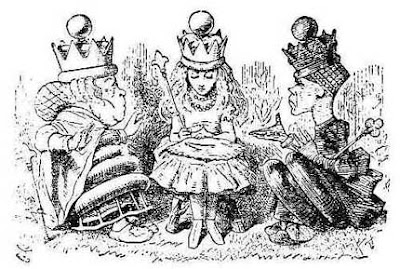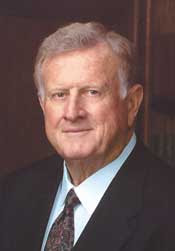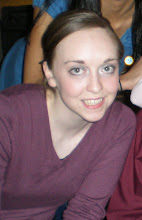Dodgson was an ingenious man and a hero in his own right. The stories he wrote about nonsense have inflamed the imaginations of children and adults for generations. To every child that has danced to soundtrack of the Walt Disney production of Alice in Wonderland, to those who got read the bedtime story and dream of their own “wonderland,” to every actor that got their "big break" on a Broadway production of Alice, Charles Dodgson is a hero. Like most heroes, Dodgson denied his connection with this story that revolutionized children's literature. Letters addressed to "Lewis Carroll" were thrown away. [i] He did not want credit for the amazing work; he only offered it to society, a token of sorts.
Before the time of Alice’s Adventures, story books for children were often grim. The stories held inside portrayed grave images of people and children who had disobeyed societal norms or the religious beliefs of the collective whole. Most parents today would be horrified to read the stories to their children; yet in the time of Dodgson, these little books were commonly used to teach children morals and “scare” them into obeying their elders and parents. Dodgson’s stories about Alice— while holding a bit of moral ideas— were basically about “nonsense.” The books were simply silly stories to entertain, not to teach. This idea of a children’s novel for the sole purpose of entertaining had been around for a while, but Dodgson’s Alice in Wonderland made it popular. Since then it has not gone out of style.
Before the time of Alice’s Adventures, story books for children were often grim. The stories held inside portrayed grave images of people and children who had disobeyed societal norms or the religious beliefs of the collective whole. Most parents today would be horrified to read the stories to their children; yet in the time of Dodgson, these little books were commonly used to teach children morals and “scare” them into obeying their elders and parents. Dodgson’s stories about Alice— while holding a bit of moral ideas— were basically about “nonsense.” The books were simply silly stories to entertain, not to teach. This idea of a children’s novel for the sole purpose of entertaining had been around for a while, but Dodgson’s Alice in Wonderland made it popular. Since then it has not gone out of style.

Hansel & Gredel is an example of the type of stories that were told long before Dodgson's Alice
The success of Dodgson’s books can be attributed to the ability of children to identify with Alice. For the first time (in many cases) the children were being presented with a character that was not perfect. Unlike the common religious books were the child was portrayed as a miniature saint that the child must try to be like, the Alice that Dodgson created is not the ideal child. Alice is not the smartest cookie in the cookie jar; she is very much the average child. She is curious, somewhat thoughtful (in her own childlike way), and concerned only with her portion of the world. She is respectful to those around her, but doesn’t really go out of her way to follow the societal norms. The children identify with this character that is very much like them; because of this, they can really enjoy the story.

The cover of the first published Alice book by Dodgson
Refusing to take credit for his amazing work, Dodgson became a hero that is been recognized around the world. Dodgson captured the imagination of his young readers with the nonsense and silliness that permeated his stories. He introduced a whole new genre into the world of literature; because of this donation, children around the world have laughed and giggled at the thoughtful Caterpillar, the silly Hatter, and the ridiculous Queen of Hearts.

The Mad Hatter's Tea Party
_________________
[i] Anthology p.674 (John Dougill, on Dodgson’s Oxford, in Oxford in English Literature, p. 130)










